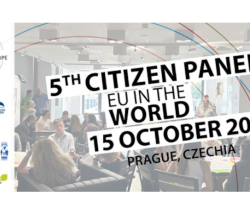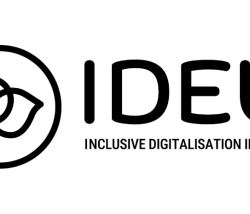"It's the idea that participation is not used to manage political dissensus and political contestation. It is not used to settle political debates, they are settled in an authoritarian way, an increasingly authoritarian way, and participation is on the sidelines of political life and democratic life in the sense of public disagreements. And the democratic meaning of this participation is nowhere to be found".
Guillaume Gourgues (political science researcher at the University of Lyon II)
Interview by Morgan Lairy (Intern at Democracy International)
Over the past few months, France has been going through one of the biggest political crises of the Fifth Republic (in place since 1958). It began with the pension reform and in particular the use of Article 49.3 of the Constitution, which allows the usual legislative process to be bypassed. While the vast majority of French people rejected a reform that was finally adopted (despite appeals to the Constitutional Council) and the demonstrations were suppressed (excessive use of force, wrongful arrests, bans on gatherings, etc.), President Emmanuel Macron continues to defend the democratic legitimacy of his reform, relying in particular on the citizen’s forum on Labour.
The government is strictly limiting the national debate to this forum, whose recommendations are in no way binding on the government. A consultation on pensions had already taken place between 2018 and 2019, but its conclusions were not followed by the government. Guillaume Gourgues, a political science researcher at the University of Lyon II, talks of a "deterioration in social democracy". He has co-authored a forthcoming book on the subject with Alice Mazeaud: « Une « participation d’Etat » sous contrôle. La neutralisation décisionnelle des dispositifs participatifs en France », Revue Française de Science Politique, (74-5), 2023. He granted me an interview to discuss and share his expertise on the use of participatory democracy in France under Macron and the consequences for the health of our democracy. An opportunity to look back at participation in France, how it has been hijacked by the government and how far we still have to go.
State participation and managerial conception
What Guillaume Gourgues calls “State participation” covers all participatory and deliberative mechanisms organised by the government or central administration of a country. In France, State participation has a monopoly on participatory democracy. The French Constitution provides only for presidential referendums (or plebiscites) and since 2015 the RIP, Referendum of shared initiative, nearly impossible to trigger. Indeed, the procedure needs to be launched by a fifth of Parliament members and to be supported by a tenth of the electorate.
In parallel since the 90s, participation has been institutionalised and it was soon entrusted to an independent body: the National Commission for Public Debate (CNDP). However, with the arrival of Emmanuel Macron in 2017, participation took a different turn, following a managerial or even presidentialist approach. The most striking moment was undoubtedly the Gilets Jaunes (Yellow Vests) crisis in 2018. This unprecedented social movement was essentially made up of individuals from working-class backgrounds protesting against rising fuel prices. The protest would turn into a popular demand for more democracy and the call for a Citizen's Initiative Referendum. In response, the government organised a major national debate. However, this major debate has not been entrusted to the CNDP (whose initial role it was), allowing the executive to retain control over the organisation and conclusions of the debate. "And that's the big break: we can see that the executive power wants to get rid of the independent organisation of participation", explains Guillaume Gourgues.
Macron's terms in office have so far been marked by a proliferation of participatory processes. The current executive is defending a single concept of participation: it must be decided by the president, the government or the central administration, which can choose the themes, the format, the service providers and even control the results. "This corresponds to a managerial vision in the sense of State reform: participation must be in line with good public management", says Guillaume Gourgues. These citizen consultations are generally organised by private service providers, to whom the government owes no account: since 2017 this has represented almost €10 million . "We end up with a form of participation in which there is no citizen initiative and no independent body to guarantee the organisation of the whole thing".
Among them, the Citizens' Climate Convention has been the subject of much ink, because its recommendations have not been followed (or only to a very limited extent) by the government. The conventions are not organised by the CNDP but by the CESE (the Economic, Social and Environmental Committee), which is separate from the government, but which does not have the means to guarantee the independence of the participatory mechanisms it organises. "If citizens' conventions are embedded in authoritarian institutional practices, what democratic scope do they have?”, wonders the professor.
A few weeks ago, a citizens' convention on the end of life delivered its conclusions. The principle was the same as that of the climate convention, and it's a safe bet that its recommendations won't be adopted by the government in its bill either. "When they announced the end-of-life convention, I thought it was a very good idea. Historically, deliberative tools have been invented to settle unresolvable moral conflicts", says Gourgues. The issue of the end of life is indeed a particularly sensitive one, for which "representative democracy is not enough". However, what we can see is that the criticisms levelled at the climate convention have not borne fruit, and the mechanism has remained unchanged. If we look at the legislation and the conventions' instructions for use, their aim is to "enlighten decision-making". Their role is therefore unclear, and above all there is nothing to indicate that the government is obliged to monitor their results. The final decision rests with the executive alone. "This is the opposite of what should be done and the opposite of what the deliberative theory of democracy says. You can't decide on your own.”, points out Gourgues.
Is this enough to discourage citizens and activists from taking part in public and political life?
According to Guillaume Gourgues, there is naturally a certain distrust among the population towards state participation organised by the current government. He takes as an example the great national debate we mentioned earlier, organised in the wake of the Gilets Jaunes crisis: the citizens who took part in this consultation are for the most part very far removed sociologically from the social movement and are instead closer to the contours of the Macronist electorate.
However, it does not mean that citizens are any less willing to get involved in public life. Taking the Gilets Jaunes as an example, this movement has brought together people who don't usually get involved politically, if at all. Not only did these citizens quickly mobilise and get involved, but democratic values were also quickly put at the centre of their demands. "We need to take very seriously the demand for a Citizens' Initiative Referendum (RIC), which has a very strong democratic imagination", says the researcher. It's the same dynamic that we find with the pensions movement. And yet nothing is in place to accommodate this popular demand, which has no institutional means of making itself heard. "Today in France, we have zero citizens' initiatives in terms of participation”, regrets the interviewee.
"The fact that a social movement on such a scale, which we thought would be lost forever in France, finds itself faced with the moment when we should be moving towards a democratic solution and we can't because it's the government that controls the tools for participation, adds to the impression of a dead end, of an institutional impasse."
So what do we do?
The protest against pension reform has to some extent become a protest against the Vth Republic itself. For Guillaume Gourgues, the short-term solution to the political crisis is clear: as pension reform is not urgent, it must be put to the test of broader citizen participation, with the trade unions playing an important role. But the government does not seem prepared to back down (or to compromise) and all the oppositions’ appeals have been defeated .
Given this institutional and political impasse, what are activists and citizens left with? According to the researcher, there are several ways out to be made. One of the first responses Guillaume Gourgues gives is civil disobedience, and this is the path chosen by part of the population (whether or not it is approved by the majority), i.e. calls for general strikes or demonstrations (violent or not, authorised or not). The social movement should also rally its demands around a call for greater participation, because this is the fundamental problem being raised. This is the role that the social movement can play, asserting that "participation is a common good, a public good like the electoral system, like freedom of the press, like fundamental freedoms", explains the professor. And on that basis, build concrete proposals aimed at political parties and the general public. "We need to create a common reform agenda around participation, by defining what participation we want and what participation we don't want".
There is a need to create institutional constraints that impose themselves on governments and force them to go through the participation and public debate process before legislating on such important issues. To do this, we need to pave the way for a politicisation of participation in France. In other words, we need to bring about a political debate on what participation is in France, what we want to do with it and what the results of participatory mechanisms will be used for. The political parties, and in particular the left-wing political forces, have a share of responsibility in this process. They should put forward an alternative political model based on broader participatory democracy, in order to respond to popular demand and stimulate a real political debate on the subject. According to Gourgues, the proposals regularly put forward by the left, such as reforming the Constitution, changing the Republic or calling for "more room for the citizen", are still very vague.
This is a pivotal moment for the future of participatory democracy (and democracy in general) in France. There are systems in place elsewhere, particularly in Europe, that could serve as a source of inspiration such as Ireland or Germany. Many actors have a role to play in this possible transition, and first and foremost citizens. After all, we can see today with the United States on abortion that participatory democracy can also be a threat to human rights and fundamental freedoms. "My aim is not to dramatise the situation unnecessarily, but to describe what is happening. An authoritarian or even very authoritarian use of participation is totally compatible with the use of even the most sophisticated participatory mechanisms. It is not enough to have recourse to mechanisms, however sympathetic they may be, to act on the degree of democracy in a society or a State". The risk of the arrival of the far right in France is a reality, and the existing presidentialist participatory mechanisms could be an open door to the endangerment of fundamental rights. And it is up to us, as citizens, to always remain vigilant to preserve the future of democracy in our country.
Suggested reading to take you further :
- Lee, Caroline W., McQuarrie, Michael and Walker, Edward T.. “Democratizing Inequalities: Dilemmas of the New Public Participation” (2015)
- Schäfer, Armin and Wolfgang Streeck. “Politics in the Age of Austerity.” (2013)




